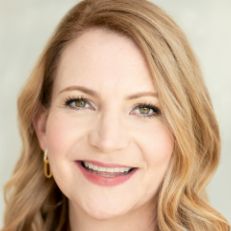What is hoarding disorder, and how is it different from collecting or clutter?
Hoarding disorder is a mental health condition characterized by the persistent difficulty discarding or parting with possessions—regardless of their actual value—due to a perceived need to save them and distress associated with letting them go.
Hoarding is not the same as collecting or simply being disorganized.
Key differences:
- Collectors seek specific items, organize and display them with pride, and feel joy in their collections.
- Clutter may result from being too busy, overwhelmed, or disorganized, but it can generally be resolved with effort or help.
- Hoarding, on the other hand, leads to excessive accumulation, often filling rooms and pathways, impairing everyday use of the home, and causing significant emotional, physical, social, or financial distress.
A trained hoarding therapist can help identify the difference and determine whether hoarding disorder is present, often using diagnostic criteria from the DSM-5.
What causes someone to develop hoarding behaviors?
There is no single cause of hoarding, but research suggests it arises from a combination of psychological, emotional, and neurological factors. Common contributors include:
- Emotional attachment to objects: Believing items have sentimental value, “might be needed someday,” or are irreplaceable.
- Perfectionism: Fear of making the wrong decision about discarding something.
- Difficulty categorizing or organizing: Problems processing information or deciding what to do with items.
- History of trauma or loss: Hoarding may develop or worsen after experiences such as death, divorce, eviction, or abuse.
- Family patterns: Growing up in an environment where hoarding was modeled or enabled.
- Anxiety and depression: Hoarding behaviors can be an attempt to manage difficult emotions or gain a sense of control.
Everyone’s story is different. Therapy for hoarding helps explore the underlying reasons and emotional dynamics driving the behavior.
Is hoarding a mental illness?
Yes. Hoarding disorder is recognized as a standalone mental health condition in the DSM-5 (Diagnostic and Statistical Manual of Mental Disorders). It is considered a chronic condition, often associated with:
- Obsessive-compulsive disorder (OCD)
- Depression
- Anxiety disorders
- ADHD or executive function difficulties
- Post-traumatic stress disorder (PTSD)
While hoarding shares some features with OCD, such as intrusive thoughts and compulsive behaviors, it is considered distinct. Not all people with hoarding disorder have OCD, and not all OCD cases involve hoarding.
Understanding hoarding as a mental illness—not a character flaw—reduces shame and encourages appropriate, evidence-based treatment.
What types of therapy are effective for hoarding (e.g., CBT, harm reduction)?
Several evidence-based therapies have been shown to help people manage and overcome hoarding behaviors:
Cognitive Behavioral Therapy (CBT)
The most widely used and research-supported treatment for hoarding. CBT for hoarding focuses on:
- Challenging irrational beliefs about possessions
- Gradually reducing avoidance and emotional distress
- Developing decision-making and organizational skills
- Practicing discarding in a structured, supported way
- Managing anxiety and perfectionism
CBT often involves exposure therapy—gently facing the fear of letting go—and behavioral experiments to reduce the emotional charge of discarding.
Harm Reduction Therapy
Acknowledges that not everyone is ready or able to clear their entire space right away. Instead, this approach focuses on:
- Reducing immediate health or safety risks
- Setting achievable goals
- Improving quality of life without requiring total “clean-outs”
- Empowering clients to take ownership of change at their own pace
Motivational Interviewing
Helps clients explore ambivalence about changing, resolve internal conflict, and increase motivation in a nonjudgmental space.
Trauma-Informed Therapy
Recognizes the role of past trauma in hoarding and addresses emotional wounds that may be driving attachment to possessions.
Family or Couples Therapy
Useful when hoarding impacts relationships, especially in shared households. Therapy can help clarify boundaries, reduce conflict, and rebuild trust.
Your hoarding therapist will tailor the treatment plan to your individual needs, strengths, and level of readiness.
How do I know if someone I care about needs help for hoarding?
Hoarding is often hidden due to shame or fear of judgment. If you’re concerned about a loved one, signs they may need help include:
- Rooms or furniture no longer usable for their intended purpose (e.g., kitchen too full to cook)
- Pathways in the home blocked or unsafe
- Persistent accumulation of papers, bags, clothing, containers, or food
- Strong emotional reactions to the idea of discarding even mundane items
- Isolation or avoidance of visitors due to embarrassment
- Health or hygiene concerns related to the living environment
- Denial or defensiveness when offered help
It's important to approach the topic with empathy, not criticism. Offer support, not ultimatums. Gently suggest speaking to a therapist specializing in hoarding, and emphasize that help is available without shaming or forcing change.
Is medication ever used to treat hoarding disorder?
While medication is not a standalone treatment for hoarding disorder, it can sometimes be helpful—especially if co-occurring conditions are present.
Doctors may prescribe:
- SSRIs (Selective Serotonin Reuptake Inhibitors): Commonly used for depression, anxiety, and OCD; may reduce compulsive behaviors.
- Stimulant medications: Sometimes used when ADHD is a factor.
- Anti-anxiety or mood stabilizers: In cases where emotional dysregulation is a major component.
Medication can make therapy more effective by reducing distress and improving focus or energy. It should always be prescribed and monitored by a medical or psychiatric provider, ideally in coordination with your hoarding therapist.
What should I expect in therapy for hoarding?
Your first session will focus on building trust and understanding your story. You don’t need to show pictures of your home or disclose everything right away. Therapy is a process—and a safe space.
You can expect:
- A judgment-free environment where you’re treated with respect
- An exploration of your emotional connection to items
- Gentle curiosity about how and when the hoarding began
- Conversations about your goals—not your family’s, your city’s, or society’s
- Skill-building: organizing, decision-making, emotion regulation
- Assignments or experiments between sessions to practice discarding in manageable steps
Your therapy for hoarding may also involve collaboration with professional organizers, social workers, or medical professionals if safety risks exist. You are always in control of the process.
Can hoarding be linked to trauma, anxiety, or OCD?
Yes—very often. Hoarding is frequently rooted in deeper emotional and psychological issues, including:
- Childhood trauma or neglect: Hoarding may become a way to self-soothe, find comfort, or regain a sense of control.
- Grief and loss: After a death, divorce, or relocation, hoarding may develop as a way to preserve memories or fill a void.
- Anxiety disorders: Fear of waste, fear of forgetting, or perfectionistic fears may drive the compulsion to keep items.
- Obsessive-compulsive disorder (OCD): Though separate diagnoses, hoarding and OCD can share similar thought patterns (e.g., intrusive fears or rituals).
- Post-traumatic stress: Hypervigilance and emotional numbing may contribute to attachment to possessions.
A trauma-informed hoarding therapist can help explore these connections and create a holistic treatment plan that honors your experience.
Is it helpful or harmful to clean out a hoarder’s home without their consent?
Cleaning out a hoarder’s home without their involvement is often harmful, even when intentions are good.
Sudden clean-outs can:
- Increase shame, fear, and distrust
- Damage relationships with loved ones or caregivers
- Trigger depression, anxiety, or even suicidal ideation
- Reinforce trauma around loss or control
- Lead to even worse hoarding later on as a way to protect against future “violations”
Instead, involve the person in every step of the process, even if it’s slow. Therapy helps build internal motivation and emotional readiness, so change is sustainable and respectful. Overcoming hoarding is a journey—not an event.
How can family members support someone struggling with hoarding?
Supporting a loved one with hoarding disorder can be emotionally draining, but your presence matters. Here’s how to help:
- Educate yourself about hoarding and mental health
- Avoid shaming language like “just throw it out” or “this is disgusting”
- Respect their autonomy and involve them in decisions
- Focus on safety and functionality, not appearances
- Set gentle boundaries if the behavior is affecting your own space or health
- Encourage therapy and offer to help find a hoarding therapist
- Practice patience—real change is slow but possible
- Seek support for yourself, too. Family counseling or caregiver groups can help you process your own emotions
Healing happens in relationships. By showing compassion and setting limits, you can be a source of hope, not pressure.
You Are Not Alone—And You Are Not Your Clutter
Whether you’re overwhelmed by your own possessions or worried about someone you love, know this: hoarding disorder is treatable. You are not lazy, selfish, or broken. You’re struggling with something that deserves professional, compassionate care.
Working with a cognitive behavioral therapist for hoarding, accessing online therapy for hoarding, or engaging in counseling for hoarding can lead to powerful, lasting change. Recovery doesn’t mean getting rid of everything. It means creating space for peace, safety, and possibility—on your own terms.













